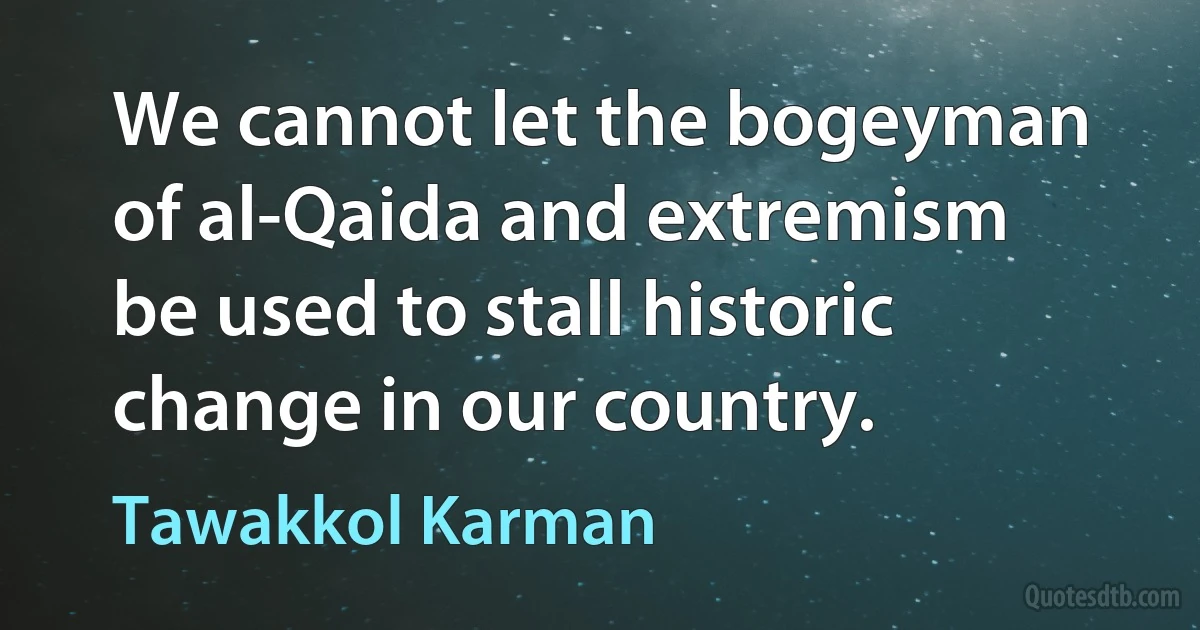Bogeyman Quotes
Spinoza, then, emerged as the supreme philosophical bogeyman of Early Enlightenment Europe. Admittedly, historians have rarely emphasized this. It has been much more common, and still is, to claim that Spinoza was rarely understood and had very little influence, a typical example of an abiding historiographical refrain which appears to be totally untrue but nevertheless, since the nineteenth century, has exerted an enduring appeal for all manner of scholars. In fact, no one else during the century 1650–1750 remotely rivalled Spinoza's notoriety as the chief challenger of the fundamentals of revealed religion, received ideas, tradition, morality, and what was everywhere regarded, in absolutist and non-absolutist states alike, as divinely constituted political authority.

Baruch Spinoza
For the traditionalists the Enlightenment boiled down to a fatal misunderstanding. All philosophes had been wrong about the nature and also, if one could put it that way, about the sex of prejudice. They had mistaken an earth mother who sustained and inspired her children for a bogeyman of a father. Then, seeking to overthrow this father, they had in reality done away with the mother-figure.

Alain Finkielkraut
"Look,” said Rumfoord, "life for a punctual person is like a roller coaster.” He turned to shiver his hands in her face. "All kinds of things are going to happen to you! Sure,” he said, "I can see the whole roller coaster you're on. And sure-I could give you a piece of paper that would tell you about every dip and turn, warn you about every bogeyman that was going to pop out at you in the tunnels. But that wouldn't help you any.”
"I don't see why not,” said Beatrice.
"Because you'd still have to take the roller-coaster ride,” said Rumfoord. "I didn't design the roller coaster, I don't own it, and I don't say who rides and who doesn't. I just know what it's shaped like.

Kurt Vonnegut
Our kids are actually doing what we told them to do when they sit in front of that TV all day or in front of that computer game all day. The society is telling kids unconsciously that nature's in the past. It really doesn't count anymore, that the future is in electronics, and besides, the bogeyman is in the woods.

Richard Louv
Emilio and I like projects to breathe and grow. We started with a concept -- write songs, make demos, then let the guest stars listen to them and then afffect the writing process. For Jose Feliciano, I had written a chorus and a bit of a melody. He started playing the chorus and ad-libbing. I went, "This is the [stuff]! Forget my melody!" Carlos Santana worked just the other way. He wanted me to record a plished take singing first, so his playing could recreate my emotion. I got goose bumps [writing "90 Millas"]. Like in "Esperando," which is addressed to Cubans on the island. Those of us in America, we're like the bogeyman, but I wanted Cubans at home to know: Whatever happened doesn't matter. The future is for us to heal. Adn also: because we're here, we latched onto any part of our culture. Yes and no [this is a political record]. Politics is life, so yes. but it's not specific. Saying that 90 miles haven't divided us sends a message about freedom for Cuba -- and for everyone.

Gloria Estefan
It thus became vital to the peace of the planters' minds that the frustrations of the "crackers," "sandhillers," or "poor white trash" be diminished or placated at all costs. This involved, first and foremost, keeping the bogeyman of race ever before the nonslaveholders' eyes, for whatever hatreds the poor whites nursed against the planters, they nursed still greater ones against blacks.

Allen C. Guelzo


